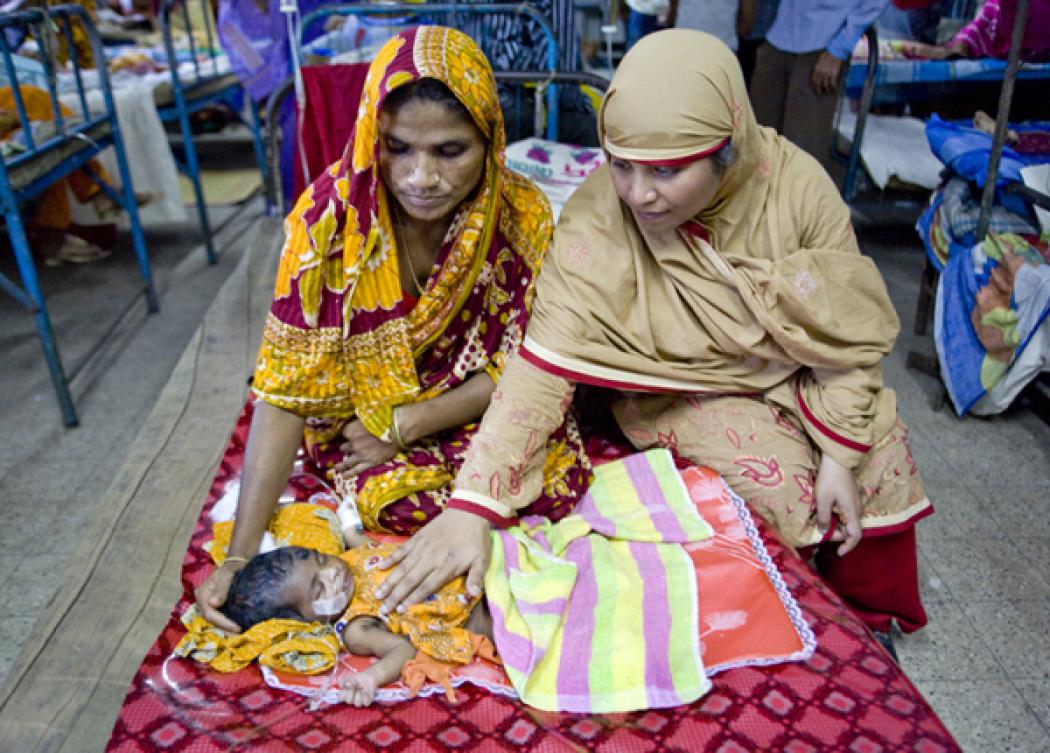How They Save Lives

In Barisal District of Bangladesh, 2-day-old newborn (yet to be named) rests beside her maternal grandmother and Dr. Ferdousi of Save the Children. After experiencing complications during labor, the mother was referred to a hospital for the local community health worker. Photo by Jeff Holt.
On the front lines of delivering proven and affordable life-saving care.
Every 3 seconds, a child’s death is prevented thanks to care provided by a frontline health worker, but millions of people are still dying needlessly because they do not have access to a health worker.
The developing world has experienced remarkable declines in maternal, child and infant mortality in recent decades, thanks in large part to the contributions of frontline health workers. Millions of people in impoverished countries are alive today because a midwife was by their side when they gave birth, or they were vaccinated as infants by a nurse, or because their families learned from a community health worker to adopt healthy behaviors like breastfeeding, hand washing, birth spacing, and sleeping under a mosquito net. But tragically, there are still too few health workers to reach the millions of families who are in urgent need of care, and millions still die every year from preventable causes. While progress is being made thanks to the training and deployment of health workers in many countries, 7.6 million children still die each year, many from treatable illnesses like pneumonia and diarrhea, 3.1 million in the first month of life. Millions of adults lose their lives due to childbirth complications, AIDS, tuberculosis and other diseases that could be managed with a skilled, equipped and supported frontline health worker. Many of the interventions that have proven most effective in saving lives require health workers to deliver them, but there just aren’t enough health workers to get the job done. Not only is there a global shortage of health workers, many lives are also lost because existing frontline health workers are underutilized or do not have the right training and equipment to provide simple and appropriate lifesaving care. Major killers of children such as diarrhea, pneumonia, malaria and newborn complications can often be prevented or treated close to home by a well-trained health worker who is armed with basic tools and skills, and is part of a functioning health system. Frontline health workers are also key to fighting diseases that kill adults. Frontline health workers do not need to be highly educated to be successful. Experience in many developing countries has shown that health workers with basic schooling plus several weeks of well-designed training, followed by on-the-job supervision, can master the skills needed to diagnose and treat common illnesses, promote lifesaving health practices and counsel families about family planning, nutrition and hygiene. Higher levels of training are needed to provide immunizations and deliver babies, but these services do not require highly trained medical staff or expensive hospital equipment.
